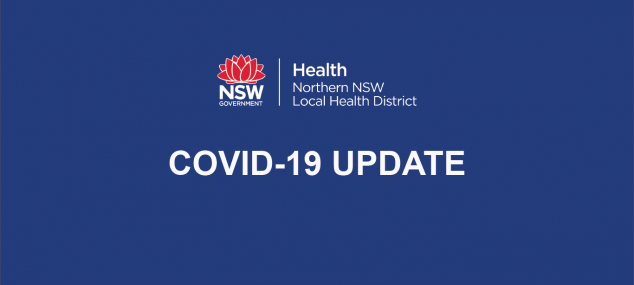
There have been no new confirmed cases of locally acquired COVID-19 reported in Northern NSW Local Health District residents since 25 July, 158 days ago.
One new case has been recorded in a Tweed Shire resident on 26 December who acquired their infection overseas. This person is currently in hotel quarantine in Sydney, and will be released from isolation once health staff confirm that it is safe to do so.
"While testing rates have dropped in the last day or two in line with the NSW trend, we were pleased to see high numbers of people coming through our testing clinics over the Christmas period, with around 2,600 tests conducted in the past week," Wayne Jones, Chief Executive Northern NSW Local Health District, said.
"We have now reached more than 90,000 tests conducted across the District, an outstanding milestone."
Anyone with even the mildest symptoms, such as headache, fatigue, cough, sore throat or runny nose, is asked to come forward immediately for testing, then isolate until they receive a negative result.
NNSWLHD cases by likely source of infection:
Source
Total
Overseas or interstate acquired
58
Locally acquired – contact of a confirmed case or in a known cluster
4
Locally acquired – source not identified
1
Under investigation
0
Total
63
To help stop the spread of COVID-19:
- If you are unwell, get tested and isolate right away – don’t delay. Remain isolated until you receive your test result.
- Wash your hands regularly. Take hand sanitiser with you when you go out.
- Keep your distance. Leave 1.5 metres between yourself and others.
- Wear a mask when using public transport, rideshares and taxis, and in shops, places of worship and other places where you can’t physically distance. When taking taxis or rideshares, commuters should sit in the back.
To find your nearest testing clinic visit https://www.nsw.gov.au/covid-19/how-to-protect-yourself-and-others/clinics or contact your GP.